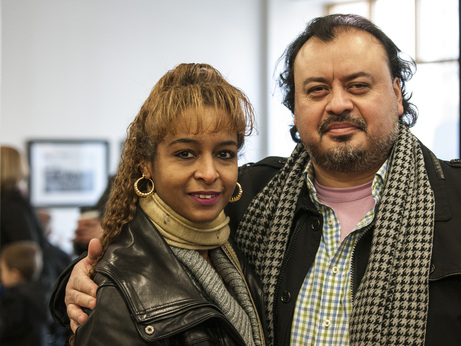 Him: "We're celebrating our 23rd anniversary." Me: "What do you like most about him?" Her: "What I do like is that he's very funny and we have the same taste in music." Me: "What do you like best about her?" Him: "She's very lovable and keeps me in line."
0 Comments
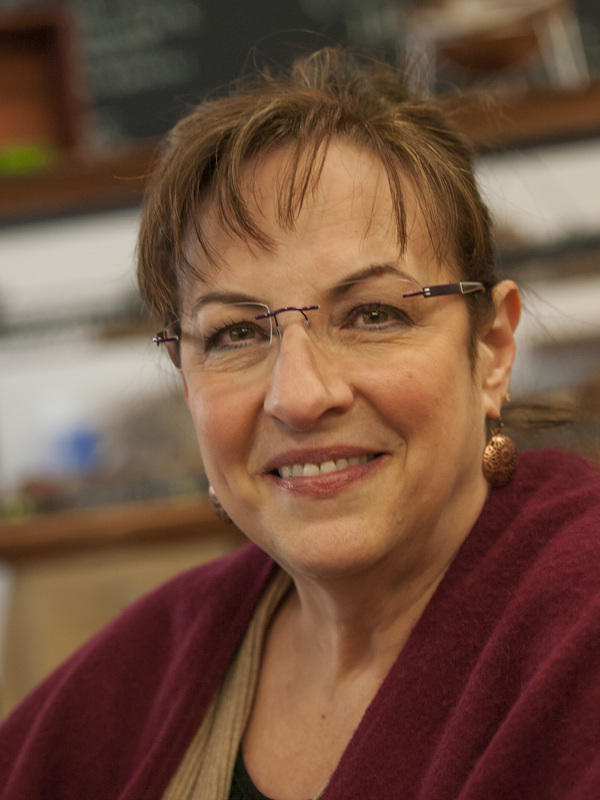 "I had a heart condition, but nobody could diagnose it. I was almost passing out, and I was really sick and I couldn't walk from here to that door without having to stop and rest. Nobody could diagnose it. I just kept looking and looking and asking and asking and I finally found somebody who could tell me what was wrong with me. If you have a health problem, and you're not finding any help with it, keep at it. Keep asking questions. You have to ask questions." 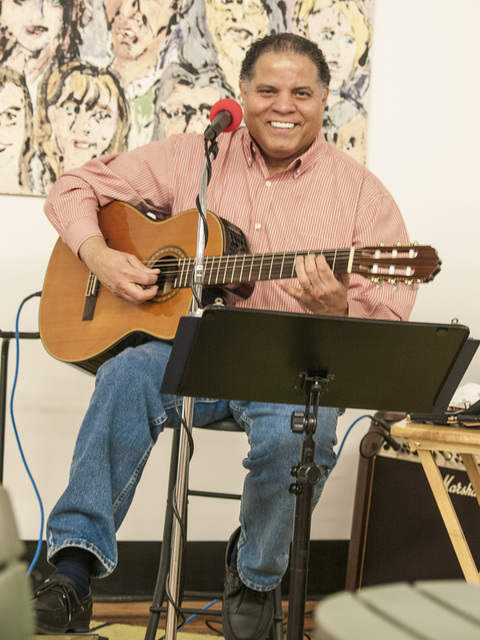 You can catch guitarist Jesse Rivera at the Farmers' Market from time to time. His melodic style makes him a pleasure to listen to. Visit his website at www.jriveramusic.com. "I started playing when I was eight years old. Never stopped. I'm almost 100--don't tell anybody! To me it's the most portable and practical instrument. I own 14 different guitars--different brands and styles, from ukuleles all the way to bass guitars, but this one, which is a nylon string classical, is my favorite." 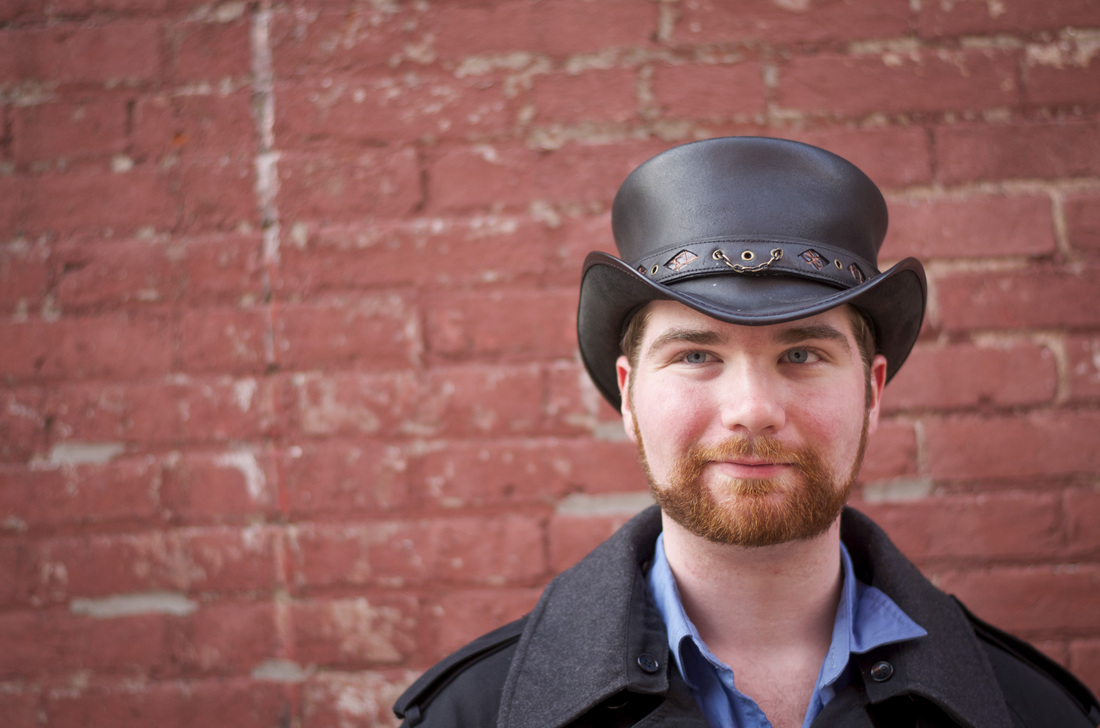 "Last year I was going through a lot of personal issues. Relationship issues, sort of the typical, 'twenty-something-what-am-I-doing-with-my-life?' kind of things. I was kind of shutting down; it was really getting in the way of my life. With a little bit of help, I managed to step back and put everything in perspective, as cheesy as that sounds, and it really helped me get through it. The best time of my life is probably right now, just living in the moment, being able to be in a nice city by my friends and learning things up on the hill at Lafayette." 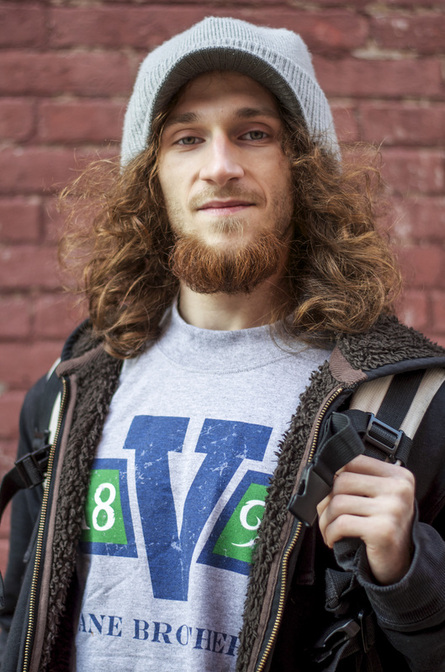 "If there were one lesson I'd want to teach people it would be that the personal is political. It is impossible to divorce the things we do everyday from everything else that is happening in the world, by the very nature of the way the world works. Every act, from working, to buying clothes, to talking to your neighbor, to picking what to eat, to choosing a TV show to watch alone, to choosing not to watch TV, is therefore a political act. It affects not only you, but so many more people, many of whom you'll never meet. So it's best to remember that the personal is political, and that almost everything you do today will have more of an impact on other people than it will on you. So choose what to do wisely." 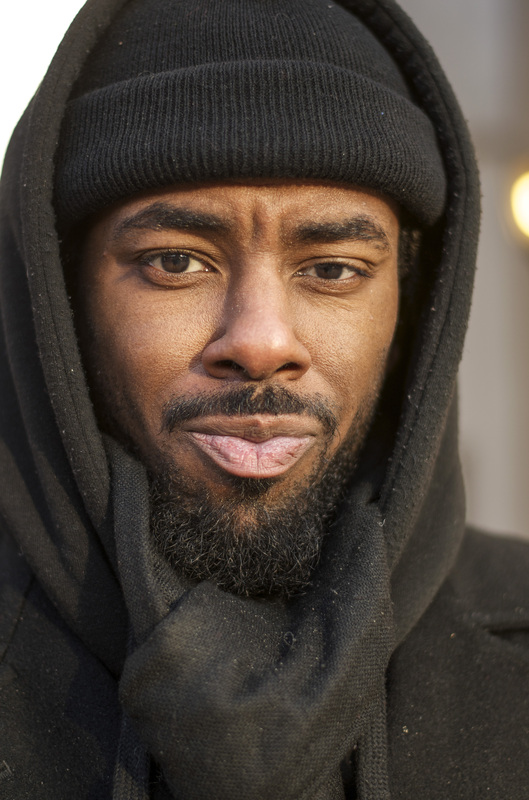 "The best time in my life was when I went to Job Corps for a year in Kentucky. It was just different… It was like the second biggest Job Corps in the country. It was people from all major cities all over; it was like, cool seeing what styles of slang and accents and how they grew up were different. I enjoyed it. Now I work at Giant." 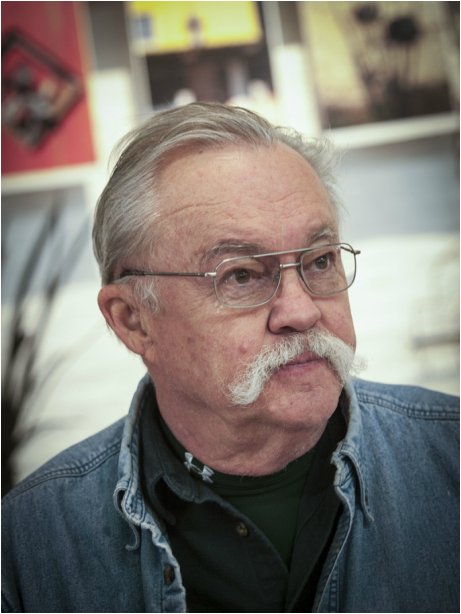 Blacksmith Ed Land explains how he became a blacksmith as his avocation, and how you can as well, under his guidance: "I was the president of a heritage society, and we had a three car, four car garage shed on the property, and one of the guys said, 'Can I store an anvil and forge in there?" I said, 'Sure, Bob, put 'em in there.' Well, overnight, we had four forges and eight anvils and all the stuff that went with it. I said, 'Let's fire it up for the fall event!' He says, 'You better talk to the park district.' I said, 'You tell the park district you have a three thousand degree open flame fire in their lousy little wood building and the answer's gonna be *no*' So I said, 'Let's ask for forgiveness.' So we started it; every kid from 10 to 16 wanted a piece of the action. We made it so they could hammer with it and they'd walk out with a hook they made at the end of a struggle. And they were delighted with it." "So where are you doing this now?" "We're doing it in Historic Bethlehem, 1750's Smithy Shoppe. We introduce you to hot metal, how to move it, what you can do with it in a three hour class. I usually start them with the small hooks, it gives you several elements of design: it's the scroll, it's the bottom of the hook, the twist, and then the flame at the top and punching holes. So there's about four or five elements involved in making that process come together. For a novice that's an hours worth of work. For myself, about ten minutes. Maybe. If you got young men you can go on and do what I call a cheese knife--what they call a shiv (laughs)--depends on your class." For more information, you can contact him at [email protected] or visit http://historicbethlehem.org/programs/blacksmithing-101/ 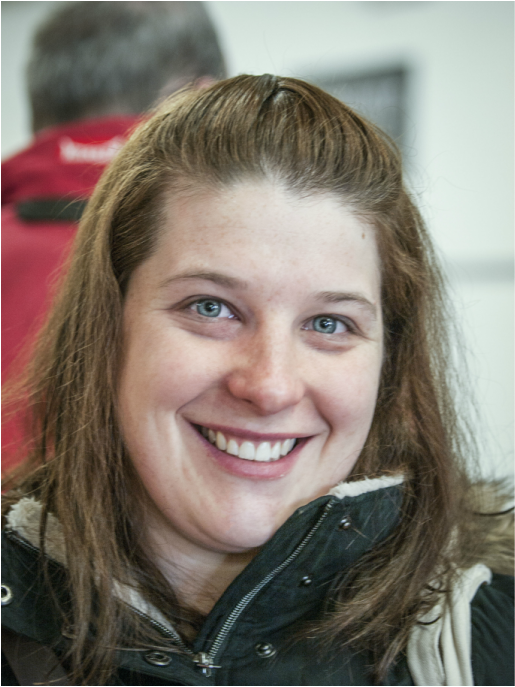 "Breathe deeply. Whenever you have an issue, if you stop and take a breath, it makes it a lot easier." "So when was a time that you yourself had to stop and take a breath?" "All the time--I'm a teacher! So when things go out of order, or things happen, it's just easier to stop, take a breath and then you can go about whatever you need to do." 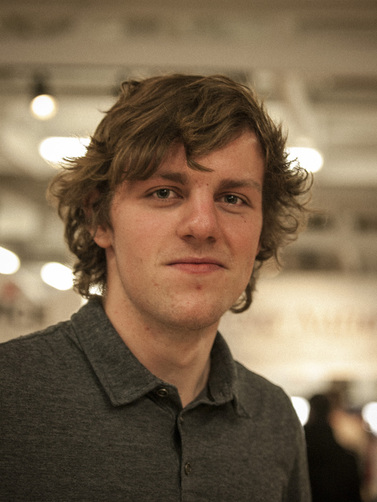 "Why major in film?" "I really appreciate the art of putting everything together, and it's just collaborate, too. Like working with all these different people, different art forms, abutting it all together to make one piece of art. I feel like movies or even short films, any kind of films, I feel like it's the pinnacle of all arts forms together 'cause it involves so much collaboration." "What was the first movie you saw when you said, 'I want to do *that*'?" "I think watching any Stanley Kubrick; that changed my whole perception on the art of film. Like there's a lot of famous directors I've seen who haven't made an impression on me. like Quentin Tarantino, people love him but he never really made that impression on me. I watched "2001: A Space Odyssey" and "The Shining" like two years ago within two weeks of each other and it totally opened my mind. It's ridiculous what he does, just the theory behind it. Film is the best way to express philosophical ideas in an entertaining way." "What kid of movies do you want to make?" "I want to make every kind of movie. Right now I'm trying to write a comedy script, a drama. I'm trying to do like every single one and see which one I like doing the most." 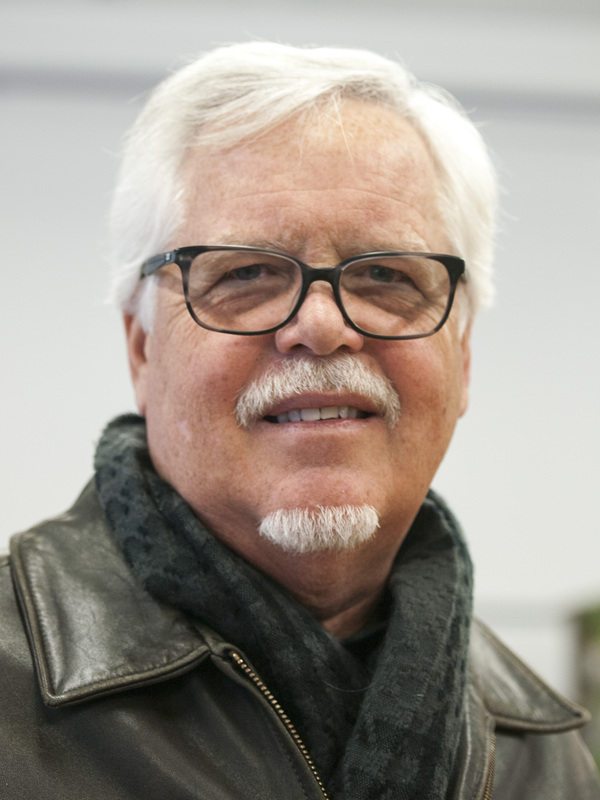 "Downsize your belongings, move to Easton, and have a good time." "And that's what you did?" "That's exactly what I did. We lived in Stewartsville. We had a big house and the kids got older and left. We sold the house, liquidated pretty much everything and now we're renting an apartment in the downtown. We looked in Manhattan and it was wayyy too expensive. We looked in Bethlehem and I wasn't crazy about Bethlehem. Easton I wasn't really crazy about either because it had a bad reputation for a while years ago, and then we came over and started looking, and we were like, 'Wow--this place is really starting to come along,' and we really thought it was a great place, up-and-coming. A lot going on, restaurants and everything. So we decided to take a chance and grab a place in the downtown area and we've been really, really happy." 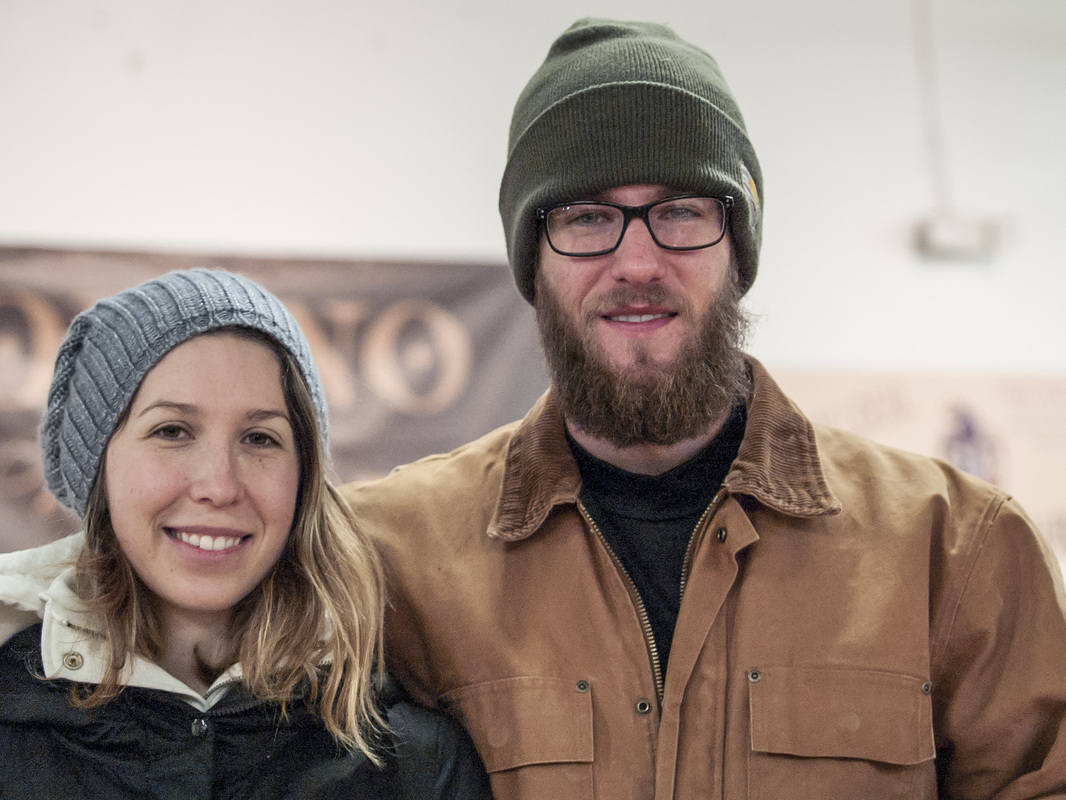 Her: "We met in high school. Now we're married. Him: "Yup!" Her: "We've been together for six years." Him: "Six years. Yup. We've been married for two and we just moved into Easton two years ago." Me: "What made you choose Easton?" Her: "We could afford it." Me: "So, when you met in high school, how did you know you for each other?" Her: "We didn't! We both had a boyfriend and girlfriend." Him: "Yup." Her: "Actually it wasn't till years later that we kind of connected." Him: "Yeah. After high school. And history was made." 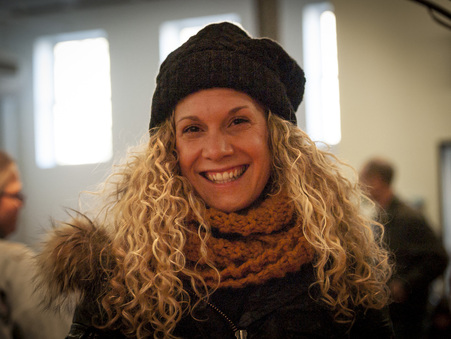 "I decided to have a home birth because that's what felt natural to me." "Was is like you thought it was going to be?" "Oh, yeah, I trusted my body and trusted my instincts and everything worked out, and I'm blessed to have had a vey healthy childbirth experience. I was scared, but I trusted my instincts and set my intentions to have this beautiful birth and it worked. I was very fortunate to have a husband who supported my decision to have a home birth. It wasn't until after I had my baby that I discovered so many mothers out the who had hospital experience because their husbands forced them, if you will, to go to the hospital because *they* were fearful. And, unfortunately, so many of those births did not turn out as beautiful as one had hoped because of these medical interventions that the mothers didn't want." 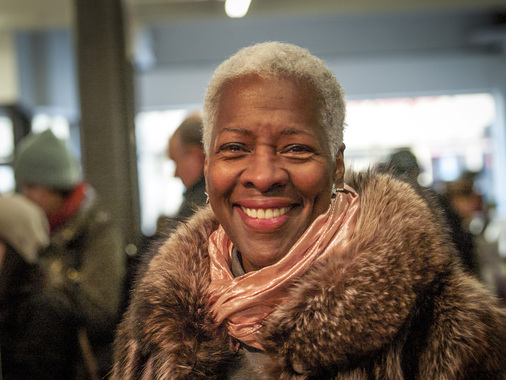 "When was a time that tested your faith or you had to have extra faith?" "When I was working on my dissertation and trying to finish that up." "What was your dissertation on?" "Violent juvenile offenders. I was a school psychologist and I was looking at young people who were being incarcerated in New York City at alarming rates, and tried as adults at that time, in the '70s. I was looking at the differences between boys and girls and whether or not people who came from broken homes were more prone to socially violent behavior." "Have things changed?" "I think we're in a more violent society today, so it's more widespread." 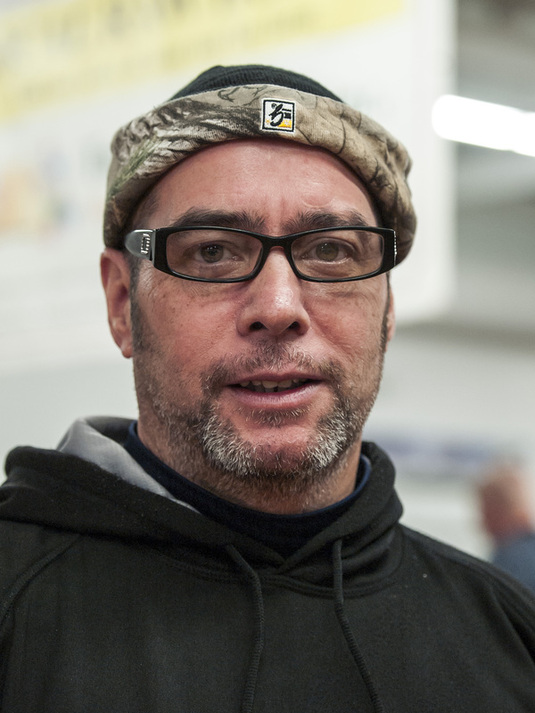 "My mother just passed away. We're from a large family, so our message to everybody is never forget her and never give up." "What's the best memory that you have of your mom?" "Instilling our core family values in us. My father was Filipino, my mother's Irish. My father died when we were young, so she kept his heritage going, from the youngest ones, the ones and twos, to the thirty-, forty-, fifty-year-olds. Kept us all together through that time." 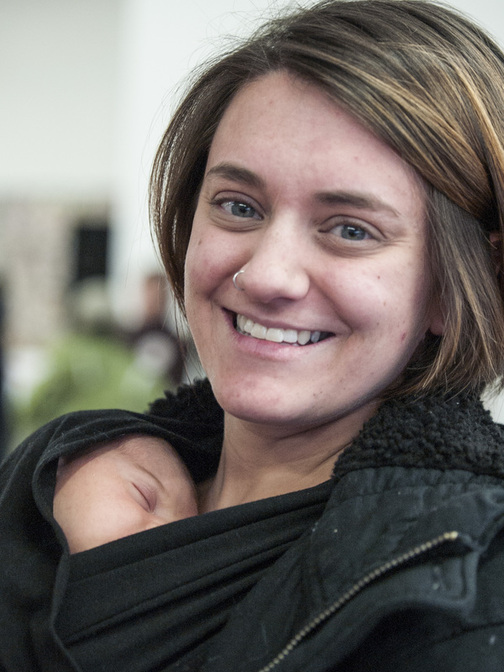 "What has being a mom taught you that didn't know before?" "Wow… Everything! It's only been two and a half weeks, so I think the biggest thing is that someone else's needs and taking care of those needs becomes a priority." "What do you think the most impotent advice that you're going to be able to eventually give her will be?" "Just be a good person and do good things." 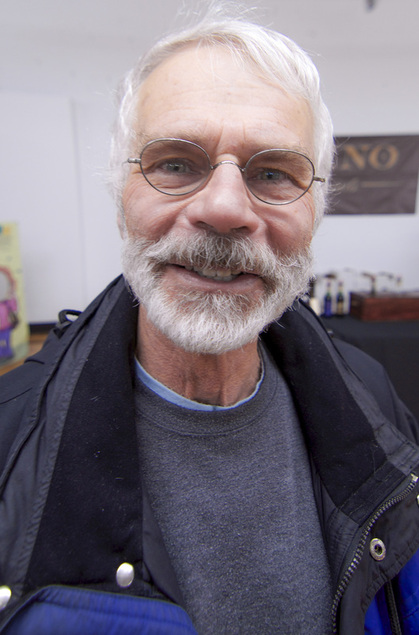 John Cosgrove is an one well-rounded guy. According to my research around the Internet, he's a poet, teacher, bicyclist, physicist, and currently a docent for the Nurture Nature Center, a local treasure at 518 Northampton Street. We spoke recently about the challenges of getting people to come in and check the Center out: "One of the hardest things to get people to appreciate is how neat the Science on the Sphere is. I can tell people about it; I can describe it: a six-foot diameter sphere suspended from the ceiling with a quarter-of-a-million different images we can project on it. It's almost like it's holographic, but it's not really. When people come in and actually see it, they're like, 'Wow!' But the missing step is, how do I get them to know they're going to be wowed when they come in? There are only 100 of these spheres that exist in the world, and right here in little ol' Easton we've got one of them. It's such a great resource for the area. The next closest one would be in Harrisburg. There's one in Baltimore. None in New York City. None in Philly. But right here in downtown Easton we've got Science on the Sphere. In addition to the sphere, we've got our film series; we have our art gallery; we have various kinds of community outreach dialogues. You can find out about all of those on the website, NurtureNatureCenter.org." |
These are the stories of the people of Easton, PA Archives
August 2018
|

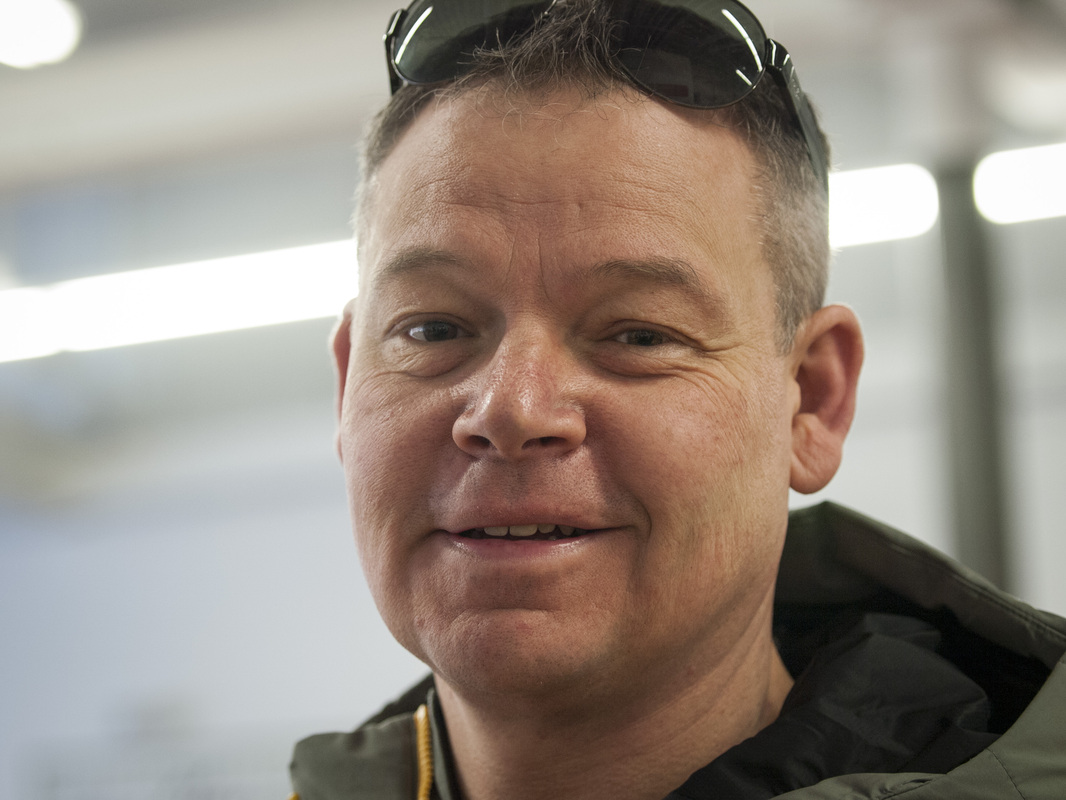
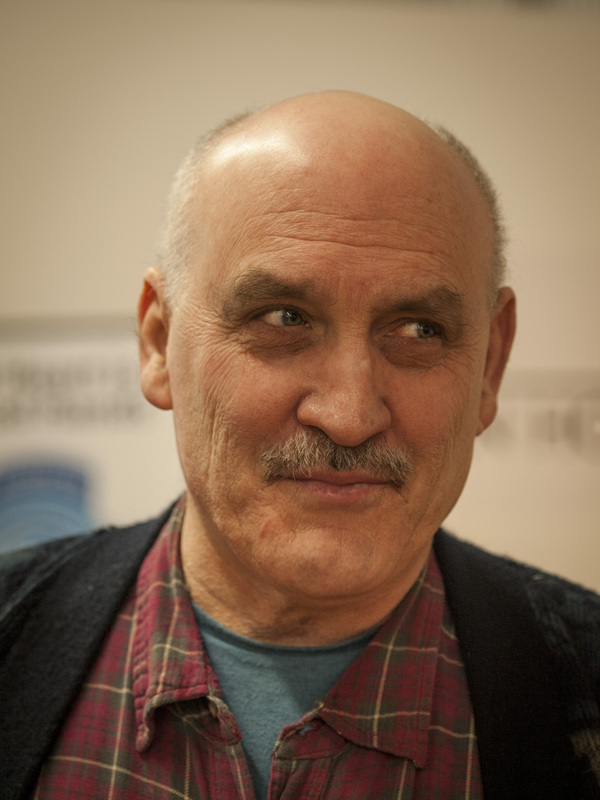
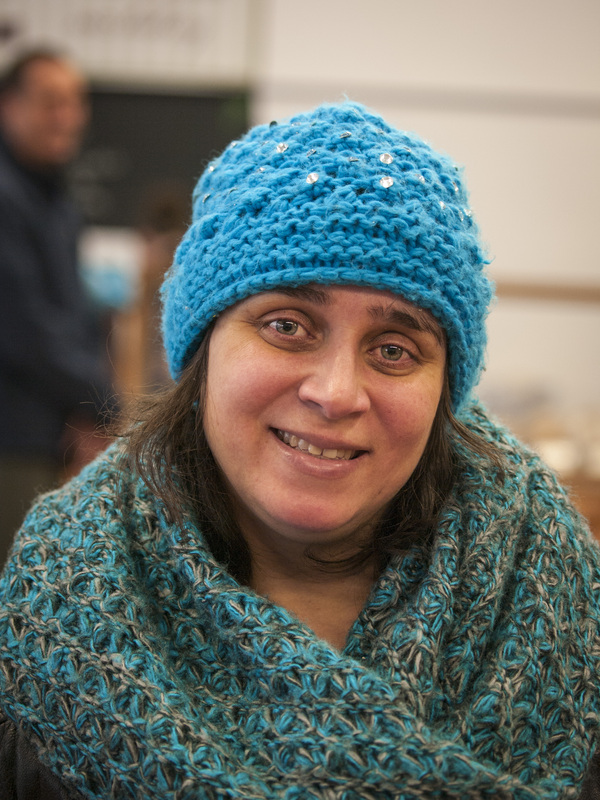
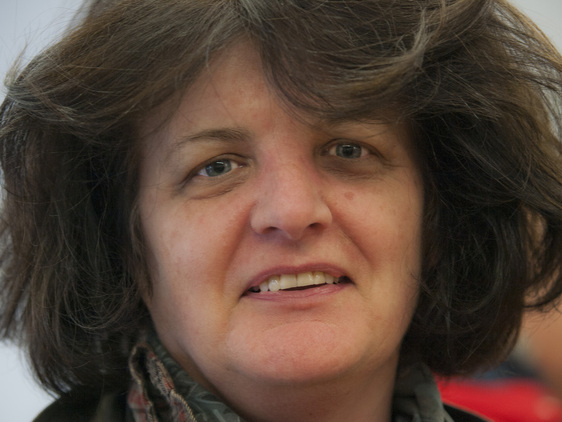
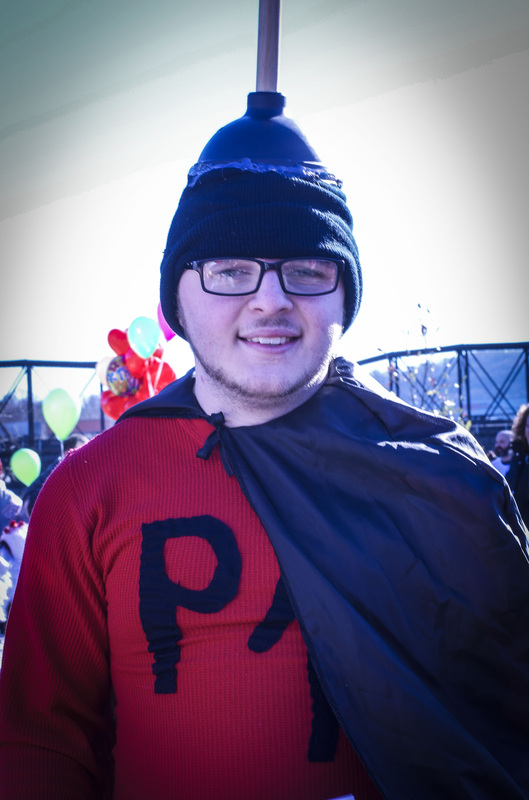
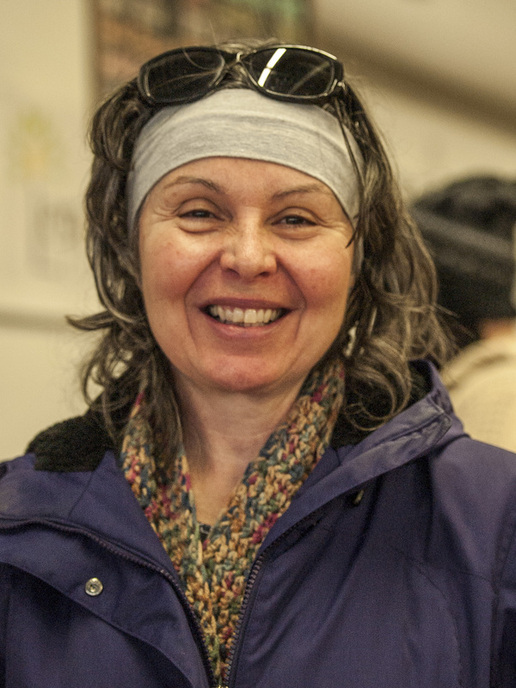
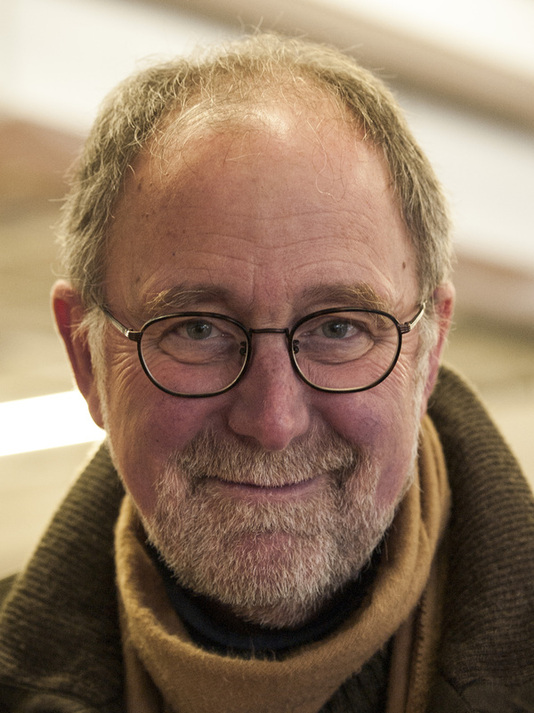
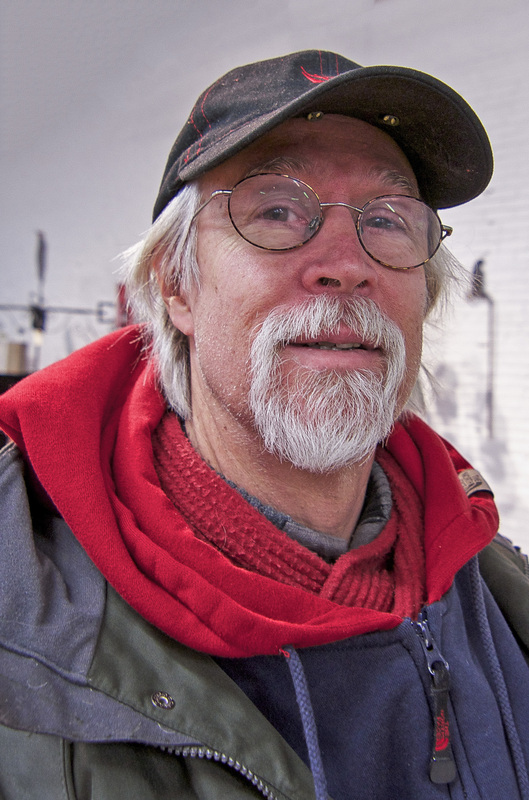
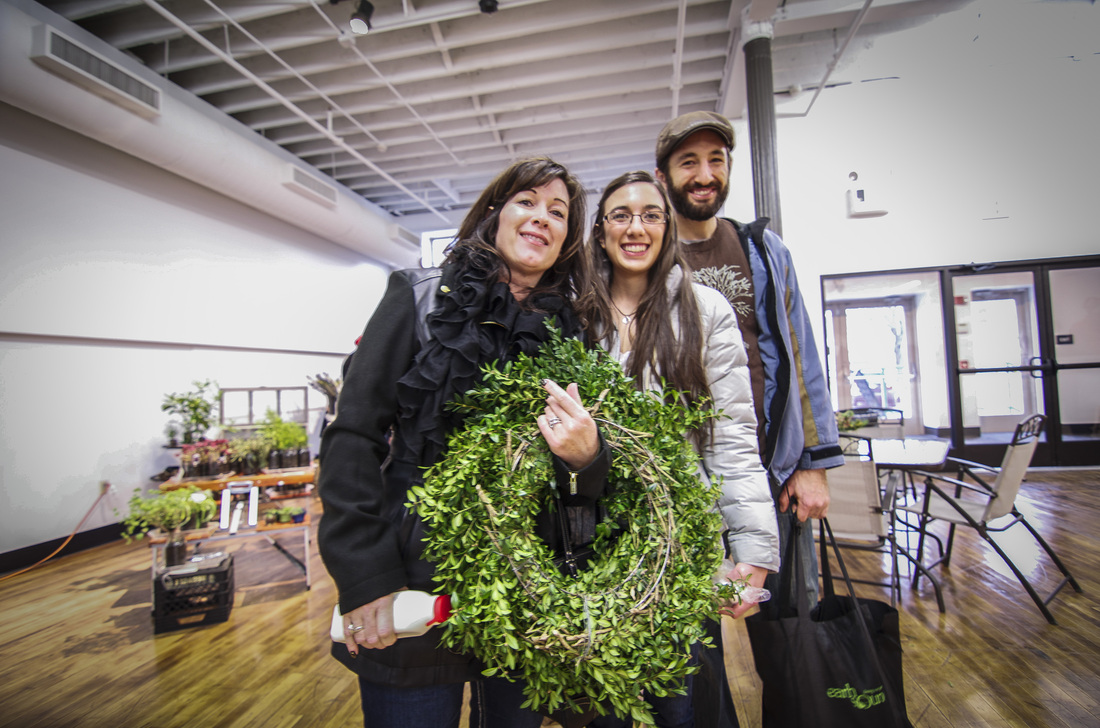
 RSS Feed
RSS Feed
